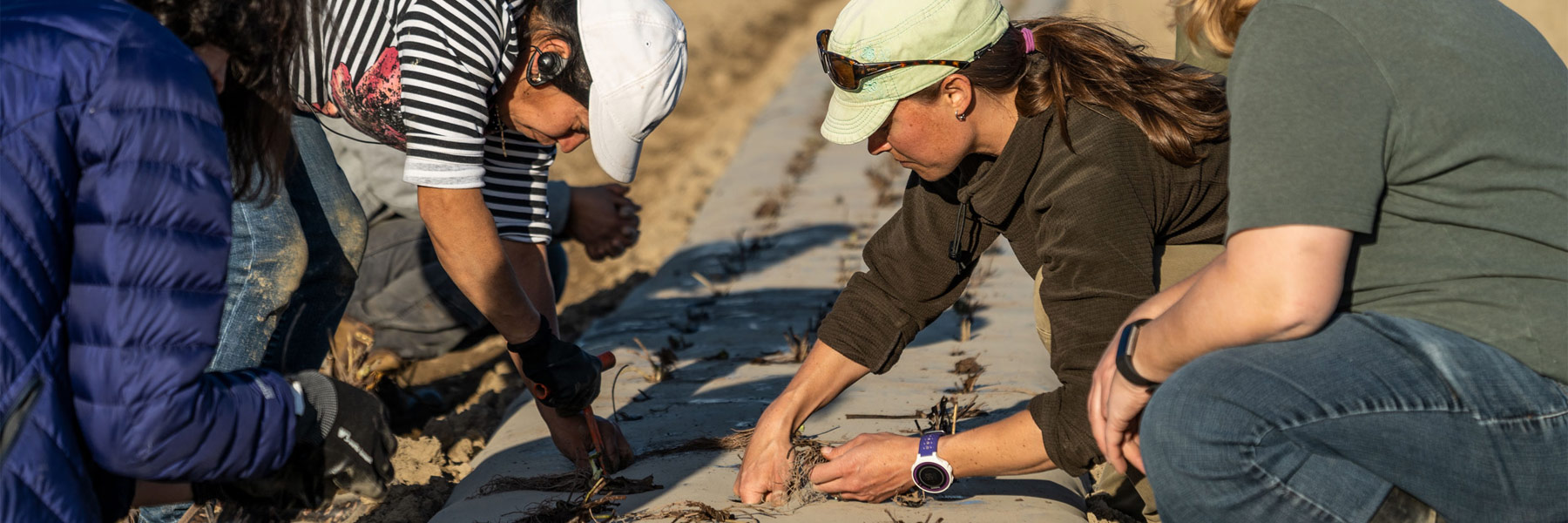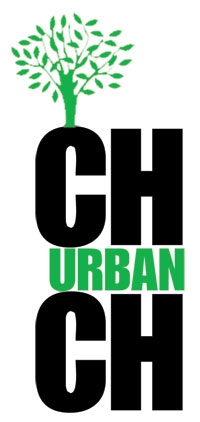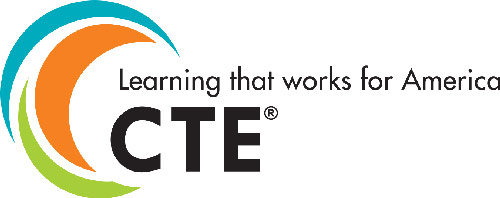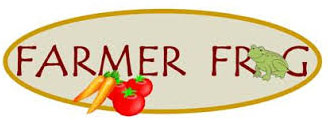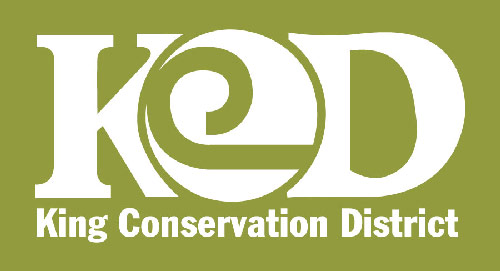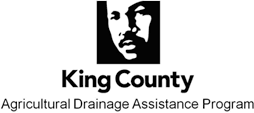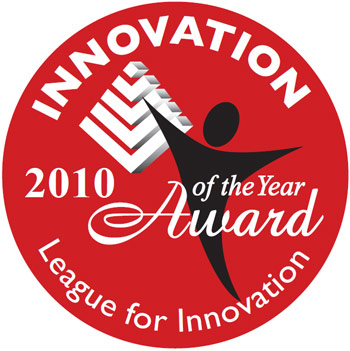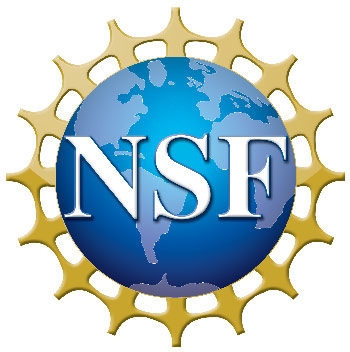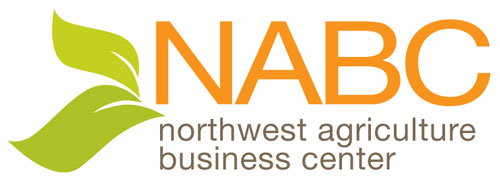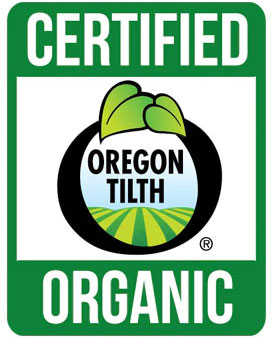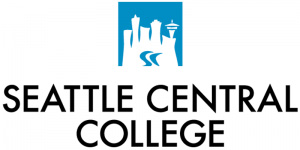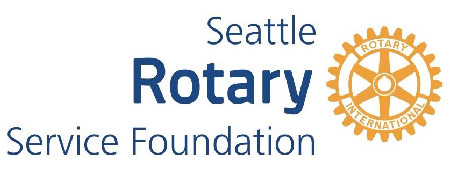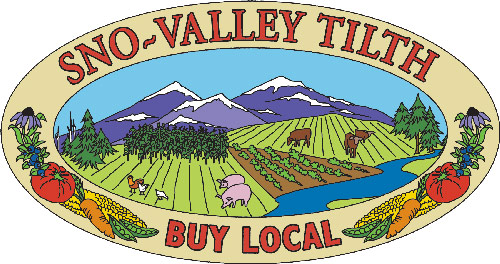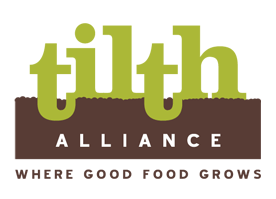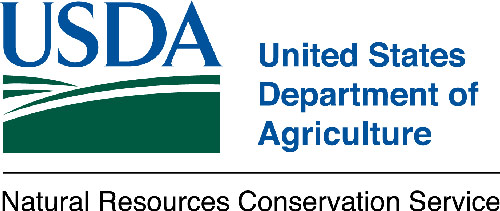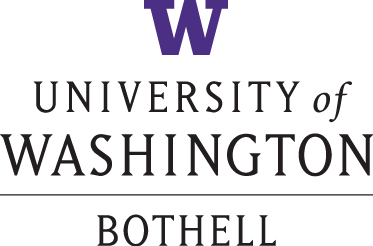SAgE History
Planting the Seed for Collaborative Education
The founding of the SAgE Collaborative stems from an understanding of the imperative action that we as a global society must take to steward our local ecosystems and natural resources in concert with securing the basic and nutritional food needs of our growing and urbanizing populations.
Furthermore, SAgE was founded as an initiative to advance such action through its mission and the cooperative leveraging of sustainable agriculture programs, projects, and policies established by higher and secondary education institutions, community organizations, local businesses, and government agencies.
Although a comprehensive program of Viva Farms since 2018, SAgE was initially a fiscally sponsored program of Seattle Central College that received seed funding from the National Science Foundation. The following history chronicles its principle developments and achievements.
2009
Awarded a two-year National Science Foundation (NSF), Advanced Technological Education (ATE) grant as a fiscally sponsored program of Seattle Central College (SCC) to develop and institute a new sustainable agriculture curriculum.
Conducted a SAgE Developing-A-CUrriculuM (DACUM) Workshop with stakeholders to identify sustainable food system work tasks, the knowledge and skills required to perform these tasks, and associated current and envisioned career opportunities.
Awarded the Seattle Business Magazine, Green Washington Award for Academic & Health Care Institutions as one of several environmental initiatives at Seattle Colleges.
2008
Conducted a SAgE Bioregional Stakeholder Institute with subject matter experts and undergraduate and graduate students to gauge the need for and interest in sustainable agriculture education and workforce development in Washington State and the Cascadia bioregion.
2011
Participated as a lead member of a Technical Working Group for Career Technical Education (CTE), formerly the National Association of State Directors of Career Technical Education Consortium, to develop Green & Sustainability Knowledge & Skills Standards for the National Career Cluster in Agriculture, Food, & Natural Resources.
2013
Established sustainable urban and small farm agriculture and food systems curricula at EDC and SVC as laddered certificates and Associate of Applied Science degrees, while also cross-listing the SVC and WSU Skagit County Extension Cultivating Success program curricula.
Funded campus and community sustainable agriculture projects, such as the EDC campus community farm, SCC plant science lab, SVC campus food garden, Capitol Hill Urban Cohousing rooftop farm, and Farmer Frog aquaponics system.
2010
Established the nation’s first community college sustainable food systems curriculum at SCC as an Emphasis within the Associate of Arts and Associate of Science degrees.
Awarded the League for Innovation in the Community College, Innovation of the Year Award in Resource Development as one of several progressive initiatives at Seattle Colleges.
2012
Awarded a four-year, second NSF ATE grant as a fiscally sponsored program of Edmonds College (EDC) in partnership with SCC, Skagit Valley College (SVC), Washington State University (WSU), and WSU Extension to form a higher education collaborative, develop and institute two new sustainable agriculture curriculum, develop and manage two new student farms, and expand partnerships to include high schools.
Conducted two SAgE DACUM Workshops with stakeholders to identify sustainable urban and small farm agriculture and food system work tasks, the knowledge and skills required to perform these tasks, and associated current and envisioned career opportunities.
2008
Conducted a SAgE Bioregional Stakeholder Institute with subject matter experts and undergraduate and graduate students to gauge the need for and interest in sustainable agriculture education and workforce development in Washington State and the Cascadia bioregion.
2009
Awarded a two-year National Science Foundation (NSF), Advanced Technological Education (ATE) grant as a fiscally sponsored program of Seattle Central College (SCC) to develop and institute a new sustainable agriculture curriculum.
Conducted a SAgE Developing-A-CUrriculuM (DACUM) Workshop with stakeholders to identify sustainable food system work tasks, the knowledge and skills required to perform these tasks, and associated current and envisioned career opportunities.
Awarded the Seattle Business Magazine, Green Washington Award for Academic & Health Care Institutions as one of several environmental initiatives at Seattle Colleges.
2010
Established the nation’s first community college sustainable food systems curriculum at SCC as an Emphasis within the Associate of Arts and Associate of Science degrees.
Awarded the League for Innovation in the Community College, Innovation of the Year Award in Resource Development as one of several progressive initiatives at Seattle Colleges.
2011
Participated as a lead member of a Technical Working Group for Career Technical Education (CTE), formerly the National Association of State Directors of Career Technical Education Consortium, to develop Green & Sustainability Knowledge & Skills Standards for the National Career Cluster in Agriculture, Food, & Natural Resources.
2012
Awarded a four-year, second NSF ATE grant as a fiscally sponsored program of Edmonds Community College (EdCC) in partnership with SCC, Skagit Valley College (SVC), Washington State University (WSU), and WSU Extension to form a higher education collaborative, develop and institute two new sustainable agriculture curriculum, develop and manage two new student farms, and expand partnerships to include high schools.
Conducted two SAgE DACUM Workshops with stakeholders to identify sustainable urban and small farm agriculture and food system work tasks, the knowledge and skills required to perform these tasks, and associated current and envisioned career opportunities.
2013
Established sustainable urban and small farm agriculture and food systems curricula at EdCC and SVC as laddered certificates and Associate of Applied Science degrees, while also cross-listing SVC and WSU Cultivating Success program curricula.
Funded campus and community sustainable agriculture projects such as the EdCC campus community farm, SCC plant science lab, SVC campus food garden, Capitol Hill Urban Cohousing rooftop farm, and Farmer Frog aquaponics system.
2014
Launched the development and management of two new SAgE Student Farms in Skagit County and King County, in partnership with Viva Farms, to provide college and university internship, practium, and research courses and new and beginning farmer training.
Conducted a SAgE High School Institute with teachers and college faculty to explore agroecological place-based learning, initiate agroecology course adoption, and support teachers in the high school-to-college course articulation agreement process.
Acknowledged as a significant contributor to the King County Local Food Initiative and Farm King County project that collectively aim to expand the local food economy and improve food access.
2016
Awarded a one-year Seattle Rotary Service Foundation (SRSF) grant to acquire a spader implement to run behind a biodiesel tractor for the purpose of soil conservation and climate change mitigation at the SAgE King County Student Farm.
Awarded a one-year, second EDC CGF grant in support of the college SAgE Student Farm-to-Campus Program.
Attained farm GAP and GHP certifications for the SAgE Skagit County and King County Student Farms.
Designed and built a prototype in-field solar cool storage unit in partnership with 21 Acres, the University of Washington (UW) Bothell Engineering Department, and Sundance Energy Services at the SAgE King County Student Farm.
2018
Awarded a one-year, third SRSF grant to train and incubate new and beginning socially disadvantaged family farm businesses, provide techincal assistance in organic sustainable crop production to these businesses, and enhance youth knowledge of agriculture and farmer training opportunities at the SAgE King County Student Farm and Farm Business Incubator.
Designed and built a rainwater catchment and greenhouse solar irrigation system in partnership with the UW Bothell Engineering Department and USDA Natural Resources Conservation Service (NRCS), Environmental Quality Incentives Program (EQIP) at the SAgE King County Student Farm and Farm Business Incubator.
Agreed to become a comprehensive program of Viva Farms: SAgE is responsible for higher and secondary education program, curriculum, marketing, and development support for partner institutions, while Viva Farms is responsible for Viva (formerly SAgE) King County Student Farm and Farm Business Incubator management, operations, training, and technical assistance.
Led the college-to-university course articulation and transfer agreement process between the SVC Sustainable Small Farm Agriculture & Food Systems program and the WSU Organic & Sustainable Agriculture program.
Expanded higher education institution SAgE Collaborative partnerships to include Highline College (HLC), Peninsula College (PNC), WSU Everett, and the WSU Mount Vernon Northwestern Washington Research & Extension Center.
Formalized higher education institution SAgE Collaborative partnerships through the signing of a Memorandum Of Understanding to model bioregional sustainable agriculture education and workforce development.
2020
Finalized the full suite of SAgE partner college sustainable agriculture curricula, composed of both common and specialized courses, and laddered credentials:
Edmonds College
- Sustainable Urban Agriculture Systems Certificate
- Sustainable Urban Agriculture Production Certificate
- Sustainable Urban Agriculture Enterprises Certificate
Highline College
- Sustainable Agriculture & Food Security Associate of Applied Science-Transfer (AAS-T) Degree
- Sustainable Agriculture & Food Security Associate of Applied Science (AAS) Degree
- Sustainable Agriculture & Food Security Certificate of Completion
Peninsula College
- Sustainable Agriculture & Food Systems Short-Term Certificate of Completion
Seattle Central College
- Sustainable Urban Agriculture & Food Systems Associate of Science Transfer: Track 1 (AS-T: Track 1) Degree
- Sustainable Urban Agriculture & Food Systems Associate of Arts Direct Transfer Agreement (AA-DTA) Degree
- Sustainable Urban Agriculture & Food Systems Emphasis
Skagit Valley College
- Sustainable Small Farm Agriculture & Food Systems Associate of Applied Science-Transfer (AAS-T) Degree
- Sustainable Small Farm Agriculture & Food Systems Certificate
- Sustainable Agriculture Applied Planning & Management (Level II) Micro-Certificate
- Sustainable Agriculture Applied Planning & Management (Level I) Micro-Certificate
2015
Awarded a two-year USDA Agricultural Marketing Service (AMS), Local Food Promotion Program (LFPP) grant in partnership with 21 Acres, EDC, and Viva Farms to attain SAgE Student Farm Good Agricultural Practices (GAP) and Good Handling Practices (GHP) certifications, address urban and small farm food storage and distribution challenges, and educate college students and train new and beginning farmers in postharvest to local market operations.
Piloted a ‘seed-to-sales’ SAgE Student Farm-to-Campus Program at EDC, SCC, and SVC in which student farmers grew fruits and vegetables; pastured animals; and marketed and sold food via wholesale contracts, Community Supported Agriculture memberships, and student farmers’ markets.
Awarded a one-year EDC, Campus Green Fund (CGF) grant in support of the college SAgE Student Farm-to-Campus Program.
Conducted a second SAgE High School Institute.
2017
Agreed to become a fiscally sponsored independent project of Viva Farms after completing the second NSF ATE grant.
Awarded a three-year USDA National Institute of Food & Agriculture (NIFA), Beginning Farmer & Rancher Development Program (BFRDP) grant in partnership with the King County Local Food Initiative and Farm King County, SnoValley Tilth, and Tilth Alliance to develop and enhance farm business incubator best management practices, education and training, technical assistance, and land access.
Awarded a two-year King Conservation District (KCD), Regional Food Systems (RFS) grant to model the Viva Farms Farm Business Incubator alongside the SAgE King County Student Farm, improve and expand farm infrastructure, and acquire additional tractor implements and farm equipment.
Awarded a one-year, second SRSF grant to develop a greenhouse season extension system; rainwater catchment system; and multipurpose structure as a tractor bay, farm workshop, and field classroom at the SAgE King County Student Farm and Farm Business Incubator.
Increased SAgE King County Student Farm and Farm Business Incubator farmland to 10 acres and became Oregon Tilth Certified Organic (OTCO).
Improved rainwater drainage and increased arable landcover in partnership with the King County Agricultural Drainage Assistance Program (ADAP) at the SAgE King County Student Farm and Farm Business Incubator.
Designed and built a greenhouse solar seed germination chamber system in partnership with the UW Bothell Engineering Department at the SAgE King County Student Farm and Farm Business Incubator.
2019
Led the HLC Sustainable Agriculture & Food Security and PNC Sustainable Agriculture & Food Systems program revisions and development.
Led the college-to-university course articulation and transfer agreement process between the HLC Sustainable Agriculture & Food Security and SCC Sustainable Urban Agriculture & Food Systems programs and the WSU Organic & Sustainable Agriculture program.
2021
Awarded a three-year, second USDA NIFA BFRDP grant in partnership with the Northwest Agriculture Business Center (NABC), Viva Farms, Washington Farmland Trust, WorkSource Washington, and WSU Skagit County Extension to review SAgE partner college programs and curricula for resiliency and sustainability given the impact of the COVID-19 pandemic; develop new Practicum in Sustainable Agriculture (PSA) courses, series, and certificates with SAgE partner colleges and universities; explore the expansion of higher education institution SAgE Collaborative partnerships and projects across Washington State; and explore the development of dual credit programming with college service area high schools to strengthen college enrollment.
Expanded higher education institution SAgE Collaborative partnerships to include UW Bothell and their community engagement initiatives that facilitate student experiential education at the Viva King County Student Farm: the Achieving Community Transformation program, Alternative Spring Break program, Community-Based Learning & Research (CBLR) program, and Senior Capstone projects.
2014
Launched the development and management of two new student farms in King County and Skagit County in partnership with Viva Farms to provide college and university internship, practicum, and research courses and small and beginning farmer training.
Conducted a SAgE High School Institute with teachers and college faculty to explore place-based concepts of agroecology, initiate SAgE agroecology course adoption, and support teachers in the high school-to-college course articulation agreement process.
Acknowledged as a significant contributor to the King County Local Food Initiative / Farm King County that aims to expand the local food economy and improve access to food.
2015
Awarded a two-year USDA Agricultural Marketing Service (AMS), Local Food Promotion Program (LFPP) grant in partnership with 21 Acres, EdCC, and Viva Farms to attain farm Good Agricultural Practices (GAP) and Good Handling Practices (GHP) certifications, address urban and small farm food storage and distribution challenges, and educate college students and train beginning farmers in postharvest to local market operations.
Piloted a ‘seed-to-sales’ Student Farm-to-Campus Program at EdCC, SCC, and SVC in which student farmers grew fruits and vegetables, pastured animals, and marketed and sold food via wholesale contracts, Community Supported Agriculture memberships, and student farmers’ markets.
Awarded a one-year EdCC, Campus Green Fund (CGF) grant in support of the college Student Farm-to-Campus Program.
Conducted a second SAgE High School Institute.
2016
Awarded a one-year, second EdCC CGF grant in support of the college Student Farm-to-Campus Program.
Awarded a one-year Seattle Rotary Service Foundation (SRSF) grant to acquire a spader implement to run behind a biodiesel tractor for the purposes of soil conversation and climate change mitigation at the King County Student Farm.
Attained farm GAP and GHP certifications for the King County and Skagit County Student Farms.
Designed and built a prototype in-field solar cool storage unit in partnership with 21 Acres, the University of Washington (UW) Bothell Engineering Department, and Sundance Energy Services at the King County Student Farm.
2017
Agreed to become a fiscally sponsored independent project of Viva Farms.
Awarded a three-year USDA National Institute of Food & Agriculture (NIFA), Beginning Farmer & Rancher Development Program (BFRDP) grant in partnership with the King County Local Food Initiative / Farm King County, SnoValley Tilth, and Tilth Alliance to develop and enhance farm business incubator best management practices, education and training, and technical assistance and land access.
Awarded a two-year King Conservation District (KCD), Regional Food Systems (RFS) grant to model the Viva Farms farm business incubator alongside the King County Student Farm, improve and expand farm infrastructure, and acquire additional tractor implements and farm equipment.
Awarded a one-year, second SRSF grant to develop a greenhouse season extension system, rainwater catchment system, and multipurpose structure as a tractor bay, workshop, and field classroom at the King County Student & Incubator Farm.
2018
Designed and built a rainwater catchment and greenhouse solar irrigation system in partnership with the UW Bothell Engineering Department and USDA Natural Resources Conservation Service (NRCS), Environmental Quality Incentives Program (EQIP) at the King County Student & Incubator Farm.
Agreed to become a comprehensive program of Viva Farms whereby, principally, SAgE is responsible for higher and secondary education institution curricular coordination, development, and research and Viva Farms is responsible for student farm and farm business incubator management, operations, and education and training.
Led the college-to-university course articulation and transfer agreement process between the SVC Sustainable Small Farm Agriculture & Food Systems program and WSU Organic & Sustainable Agriculture program.
Expanded SAgE Collaborative higher education institution partnerships to include Highline College (HC) and Peninsula College (PC).
Formalized the SAgE Collaborative through the signing of a Memorandum Of Understanding to model bioregional sustainable agriculture education and workforce development.
2019
Led the college-to-university course articulation and transfer agreement process between the HC Sustainable Agriculture & Food Security program, SCC Sustainable Urban Agriculture & Food Systems program, and WSU Organic & Sustainable Agriculture program.
2020
Finalized the full suite of SAgE partner college sustainable agriculture curricula, composed of both common and specialized courses, and laddered credentials:
Edmonds College
- Sustainable Urban Agriculture Systems Certificate
- Sustainable Urban Agriculture Production Certificate
- Sustainable Urban Agriculture Enterprises Certificate
Highline College
- Sustainable Agriculture & Food Security Associate of Applied Science-Transfer (AAS-T) Degree
- Sustainable Agriculture & Food Security Associate of Applied Science (AAS) Degree
- Sustainable Agriculture & Food Security Certificate of Completion
Peninsula College
- Sustainable Agriculture & Food Systems Short-Term Certificate of Completion
Seattle Central College
- Sustainable Urban Agriculture & Food Systems Associate of Science Transfer: Track 1 (AS-T: Track 1) Degree
- Sustainable Urban Agriculture & Food Systems Associate of Arts Direct Transfer Agreement (AA-DTA) Degree
- Sustainable Urban Agriculture & Food Systems Emphasis
Skagit Valley College
- Sustainable Small Farm Agriculture & Food Systems Associate of Applied Science-Transfer (AAS-T) Degree
- Sustainable Small Farm Agriculture & Food Systems Certificate
- Sustainable Agriculture Applied Planning & Management (Level II) Micro-Certificate
- Sustainable Agriculture Applied Planning & Management (Level I) Micro-Certificate
2021
Awarded a three-year, second USDA NIFA BFRDP grant in partnership with the Northwest Agriculture Business Center (NABC), Viva Farms, Washington Farmland Trust, WorkSource Washington, and WSU Skagit County Extension to review SAgE partner college programs and curricula for resiliency and sustainability given the impact of the COVID-19 pandemic, develop new Practicum in Sustainable Agriculture (PSA) courses, series, and certificates with SAgE partner colleges and universities, explore the expansion of higher education institution SAgE Collaborative partnerships and projects across Washington State, and explore the development of dual credit programming with college service area high schools to strengthen college enrollment.
Expanded higher education institution SAgE Collaborative partnerships to include UW Bothell and their community engagement initiatives that facilitate student experiential education at the Viva King County Student Farm: the Achieving Community Transformation program, Alternative Spring Break program, Community-Based Learning & Research (CBLR) program, and Senior Capstone projects.
Thank you ~ funders and higher education and community partners ~ for your support and collaboration!
